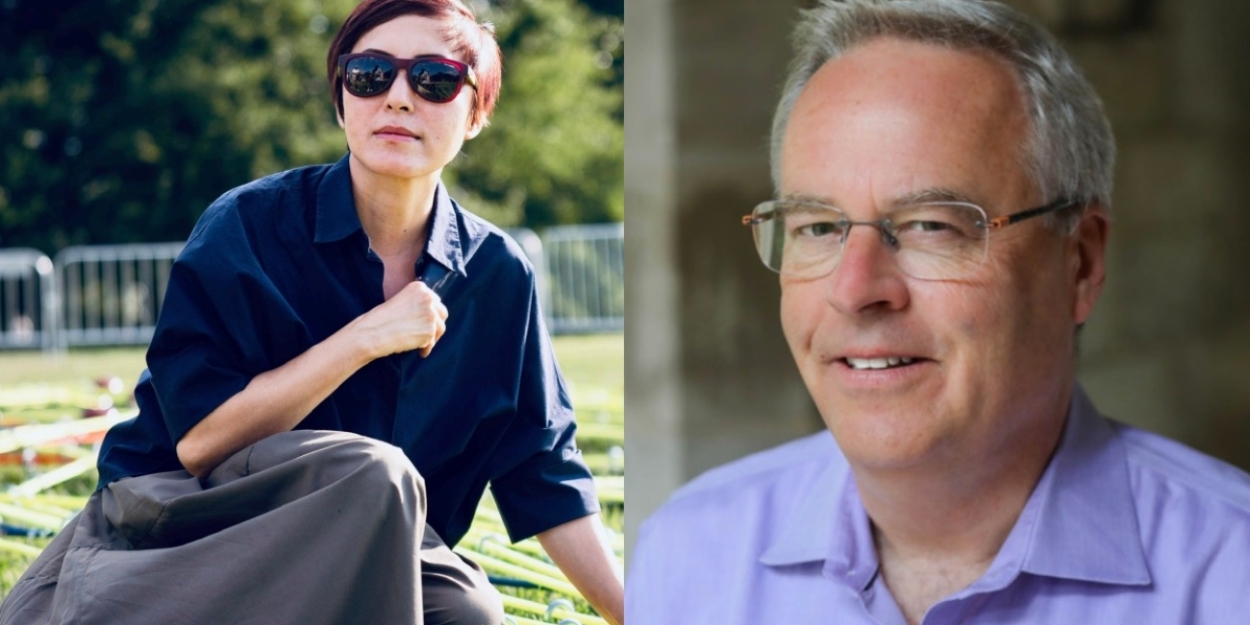The University of Chicago's Gray Center for Arts & Inquiry Announces KAVAH Fermata Artist Prize and Fellowship
The inaugural 2025 KAVAH Fermata has been awarded to acclaimed interdisciplinary artist Tiffany Chung, and University of Chicago Professor, Department of History, Mark Br

The University of Chicago has just announced the inaugural KAVAH Fermata, a new artist fellowship at the Richard and Mary L. Gray Center for Arts and Inquiry.
Founded by KAVAH, a family philanthropic initiative established by Katrine and Harry Gray that seeks to place art in dialogue with society's most pressing current issues, the KAVAH Fermata will recognize groundbreaking artists outside of the University community whose practices embrace a humanitarian ethos. Awarded artists will partner with one or more University faculty members on an experimental, open-format project that departs from their usual modes of working.
With an emphasis on co-creation, each KAVAH Fermata fellow will be awarded funding based on the scope of their collaboration, as well as be invited to determine the creative shape and duration of their fellowship period. The fellowship represents a significant investment in UChicago's vision to create an environment for artists and scholars to explore new modes of knowledge and creativity.
The inaugural 2025 KAVAH Fermata has been awarded to acclaimed interdisciplinary artist Tiffany Chung, and University of Chicago Professor, Department of History, Mark Bradley.
"Process and creativity have become diminished in a culture focused on achievement and success,” said KAVAH co-founder Katrine Gray. "With this fellowship, we invite the community to stop counting time and start inquiring and creating. We are honored that the [first iteration of this] project aligns precisely with our mission to nourish humanity through the arts. With gratitude, we further the legacy of Richard and Mary [Gray] in our own way through a shared vision with the Gray Center for an ongoing series of interdisciplinary inquiries."
Chung and Bradley, each having built careers around matters of globality and migration, passage, displacement, and diaspora, will collaboratively examine a matter new to them both: the trajectory of spices across time and space. From trade routes and ancient knowledge to recipes and contemporary conflicts, the awarded artist and faculty team will approach the global history of the spice trade as a massive fabric, seeking to disentangle and reweave the culinary, economic, and political threads that hold its 3,500 years in place. The two will go on to co- develop and teach an exploratory seminar engaging multiple campus communities– including students, faculty, and staff – as well as hold conversations and events for the public."The KAVAH Fermata's fluidity and the Gray Center's dedication in facilitating free forms of discovery and experimentation are truly refreshing, and I am so honored to be awarded this generous opportunity,” said Chung. "This reminds us to pause and breathe—to be curious and open to new possibilities in our intellectual inquiry and approach to art making, which is crucial in continuing the work we do. I am eager to learn from and collaborate with Mark.”
"As a historian, I have learned much from how Tiffany made history an essential part of her own practice,” Bradley added. The opportunity to work and collaborate with her, and to think in interdisciplinary ways about the intertwined histories of migration and the spice trade, is just marvelous. This new project on food cultures promises to produce exciting new methodologies for the ways in which we study the past.”
Joining an illustrious list of esteemed Gray Center fellows that includes Lawrence Abu Hamdan, Romi Crawford, Theaster Gates, vanessa german, Christopher Harris, William Pope L., Cauleen Smith, Slavs and Tatars, and Abigail Winograd, among others, Chung and Bradley will receive direct, flexible, and ongoing support from the Gray Center over the course of their fellowship.
"For over a decade, the Gray Center has provided a space for artists and scholars to find new ways of finding—to experience the creativity of problem-making rather than just problem-solving,” said Gray Center Director, Seth Brodsky.
"For us, collaboration has never just been about fostering new connections but intervening in how both practices and universities typically work—how they flow, stream, and create knowledge. Art practices differently, flows differently, creates knowledge differently, which is essential to our interventions and the intention behind the KAVAH Fermata.”
The hosting organization of the KAVAH Fermata, the Gray Center for Arts & Inquiry works across the Division of Arts and Humanities and Division of the Social Sciences, as well as other branches of the University of Chicago. "The KAVAH Fermata is the new culmination of the Gray Center's visionary approach,” said Deborah L. Nelson, Dean of the Division of Arts and Humanities.
"As we work to make the arts a central pillar of research at the University of Chicago, deepening our engagement with practicing artists today, the KAVAH Fermata marks a singular way forward—not only for the arts on campus but for the way universities engage art to act on our larger world.” The KAVAH Fermata joins a distinguished list of artist fellowships that are awarded by the University of Chicago, including the Rosenberger Medal.
"In conceiving this fellowship, we all returned again and again to that wonderful word: fermata,” said Brodsky, who in addition to serving as the Gray Center’s Executive Director, is also a music historian. “A fermata is always manifold, enigmatic even. It is never just a break. It is a breaking free, too, an invitation to go off-script, to concentrate in a new way. Harry and Katrine have given us the opportunity to transfigure our approach here. I don't know of another program anywhere with a comparable synthesis of design—literally, where you can design the terms of your freedom. And we are so honored and excited to be able to host this unprecedented adventure at the University of Chicago.”
Comments

Videos

